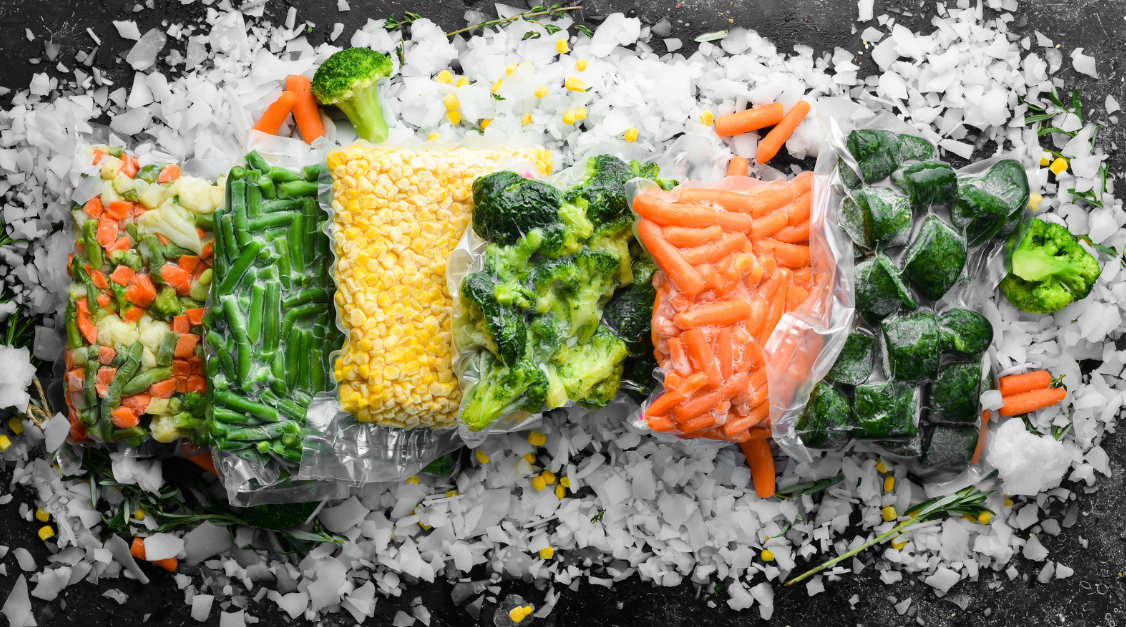
In today’s fast-paced world, where health and sustainability are increasingly top of mind, frozen organic food has emerged as a practical and nutritious solution. Once dismissed as a less desirable option compared to fresh produce, frozen organic foods are now gaining recognition for their quality, convenience, and eco-friendly potential. But what exactly makes frozen organic food worth your attention?
What Is Frozen Organic Food?
Frozen organic food refers to fruits, vegetables, meats, and ready-made meals that are certified organic and preserved through freezing. “Organic” means the food is grown or produced without synthetic pesticides, herbicides, genetically modified organisms (GMOs), or artificial additives. The freezing process locks in nutrients at their peak ripeness, often making these items just as nutritious—if not more so—than their fresh counterparts.
The Benefits
1. Nutritional Value
One of the biggest myths about frozen food is that it lacks nutrients. In reality, organic fruits and vegetables are typically frozen shortly after harvest, preserving vitamins and minerals. Studies have shown that some frozen vegetables, like spinach and green beans, retain more nutrients than fresh ones that sit for days in transit or on store shelves.
2. Convenience Without Compromise
Frozen organic meals and ingredients offer the ease of quick preparation without sacrificing quality. For busy individuals or families, having ready-to-cook organic meals can be a lifesaver on hectic days, reducing the temptation to order fast food.
3. Less Food Waste
Because frozen items have a much longer shelf life, you’re less likely to toss wilted spinach or overripe berries. You use what you need, when you need it, which can significantly cut down on household food waste.
4. Eco-Friendliness
Organic farming practices support soil health, reduce pollution, and promote biodiversity. Plus, freezing can reduce the need for preservatives and extensive packaging often used in processed foods. When paired with sustainable packaging, frozen organic food becomes a more environmentally sound choice.
Common Myths Debunked
-
“Frozen means processed.”
Not always. Many frozen organic items are simply washed, cut, and frozen without any additives. -
“Organic isn’t worth the cost.”
While organic products can be pricier, frozen versions are often more affordable than fresh organic produce and can be used over time, offering better value. -
“Frozen food is low quality.”
Modern freezing technology has drastically improved quality, texture, and taste. With proper storage, frozen organic meals can taste just as fresh as homemade.
What to Look For When Buying
-
Certified Organic Labels – Look for USDA Organic or other credible certifications.
-
Minimal Ingredients – For prepared meals, choose options with simple, recognizable ingredients.
-
No Added Sugars or Preservatives – Check the label to avoid unnecessary additives.
-
Sustainable Packaging – Opt for brands that use recyclable or compostable materials.
Final Thoughts
Frozen organic food represents a smart blend of health-conscious eating and modern convenience. Whether you’re whipping up a smoothie, sautéing vegetables, or enjoying a quick organic lasagna, frozen options make it easier to stay on track with your dietary and ethical choices. As more consumers demand transparency and sustainability, the frozen organic food market is only expected to grow—making now a great time to stock your freezer with food that’s good for you and the planet.